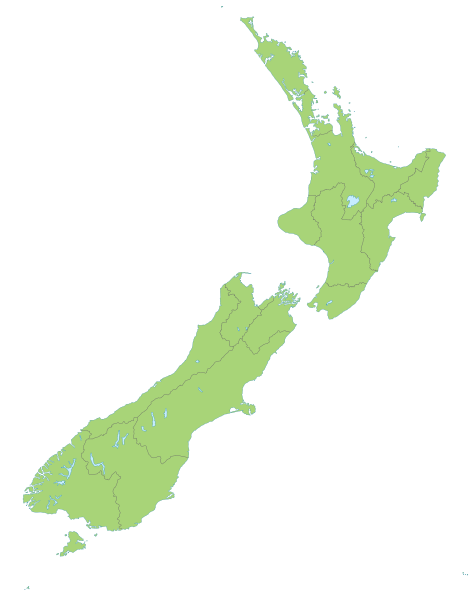UPDATES
New Zealand’s Mossad Paranoia
July 21, 2011 | Geoffrey Levin

After New Zealand media outrageously accused an Israeli victim of February’s Christchurch earthquake of being a Mossad spy, Prime Minister John Key yesterday publically announce that an investigation demonstrated that neither the victim, Ofer Mizrahi, nor any of his friends, had any involvement in espionage. In a statement on Wednesday, Key said, “Security agencies conducted the investigation and found no evidence that the people were anything other than backpackers.” It turns out Mizrahi held two passports, his Israeli and his EU one, rather than the five that a Southland Times article initially alleged. The story quickly spread throughout New Zealand newspapers, and was covered as one of the biggest stories of the week.
Only hours before Key’s announcement, Fred Tulett, the journalist behind the initial story, said he was “unshakable in his conviction his facts are accurate.”
He says the initial information given to him was checked with other sources, including an intelligence agency source.
Mr Tulett also put the allegations to Israeli Ambassador Shemi Tzur.
“He said he was angry and upset at the suggestions that these were Israeli spies or that any of them were Israeli spies, and that’s not surprising of course,” he told Newstalk ZB.
He says there were too many unusual things going on.
The Jerusalem Post published an editorial entitled ‘Conspiracy in the rubble’ dissecting the media frenzy, and condemned the paranoid worldview which led Kiwi reporters to assume that Israel’s interest in quickly evacuating survivors was motivated by a need to cover up a conspiracy, rather than a desire to protect the lives of its citizens.
The far-fetched fiction disseminated by New Zealand’s news outlets seizes on every Israeli facet of the episode – no matter how innocuous – as evidence of nefarious cloak-and-dagger schemes. It’s being claimed that one of the Israeli casualties, Ofer Mizrahi, and three of his travel- mates, were Mossad agents up to no good in Christchurch.
…Another “clue” imputing guilt was the fact that the Israelis who escaped with their lives were escorted to the airport by Israel’s ambassador and sent speedily home.
The presence of Israeli rescuers and medics is depicted as an attempt to trespass and possibly cover up trails.
According to New Zealand’s own premier, John Key, his country’s Security Intelligence Service (SIS) and local police did indeed probe suspicions that the Israeli backpackers were Mossad agents. But as Key himself admitted, these investigations turned up no evidence connecting the backpackers to Israeli intelligence.
In Key’s own words, “The unusual circumstance which triggered the investigation was the rapid departure from the country of the three surviving members of the group of Israelis in question.”
This is what must arouse our concern: suspicions about Israeli spies in the midst of a natural disaster. The very fact that the tragic roll-call of casualties included Israelis sufficed to generate allegations of wrongdoing.
The 2004 kerfuffle in which two Israelis sought to fraudulently obtain New Zealand passports certainly doesn’t justify this behavior. Considering how far removed New Zealand is from our arena, its attitude betokens bias more than vigilance.
The editorial concludes by linking the initial story and subsequent media frenzy to the growing delegitimisation of Israel abroad, a problem tied more to prejudice than to the actions of the Jewish state.
Christchurch’s canard is symptomatic of Israel’s international standing and constitutes a measure of our delegitimization and ostracism even in distant places. So habitually tarnished are we that it’s easy to smear us further and accuse us of just about anything.
No reasonable gestures or concessions on Israel’s part are likely to offset blatant prejudice.
The newspaper that ignited the whole controversy, New Zealand’s Southland Times, has yet to apologise for the false accusations and appears unlikely to do so. Rather, it has been reported that “Southland Times editor Fred Tulett told Radio New Zealand that he stood by his story”, citing Key’s announcement as evidence that his paper’s actions were justified, saying it shows that Israel’s actions were suspicious enough to prompt an investigation. While the paper has published Prime Minister Key’s statement, below it, the paper’s website still lists the supposed ‘circumstantial evidence’ it used in its initial inflammatory article.
Geoffrey Levin
Tags: Australasia





